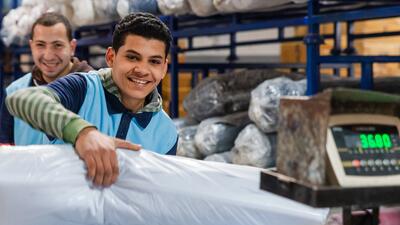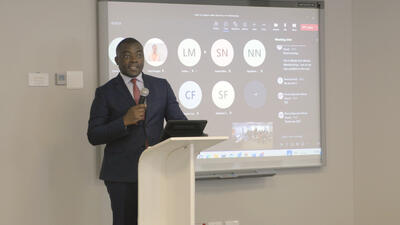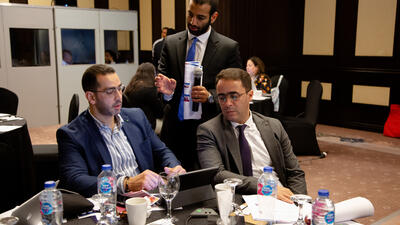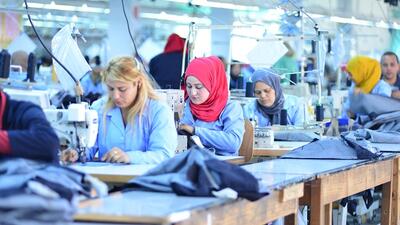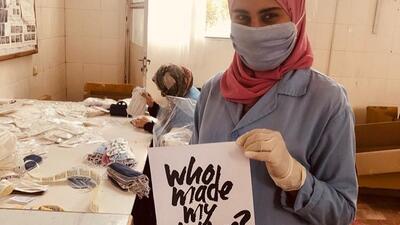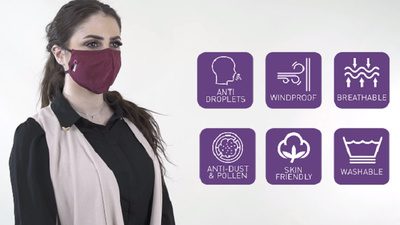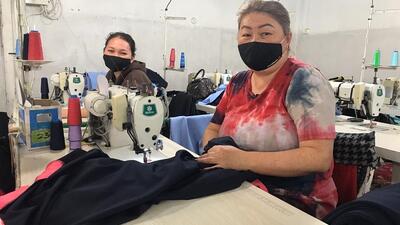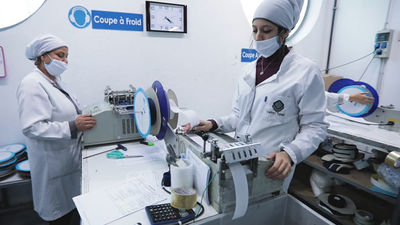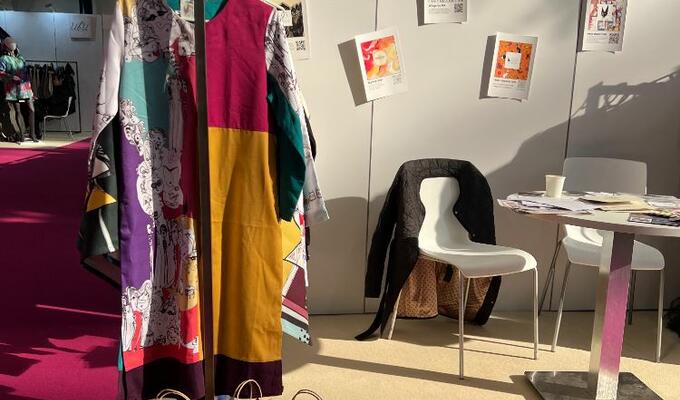
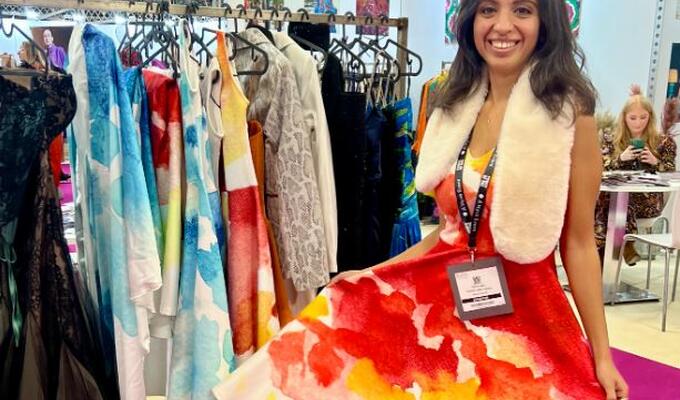
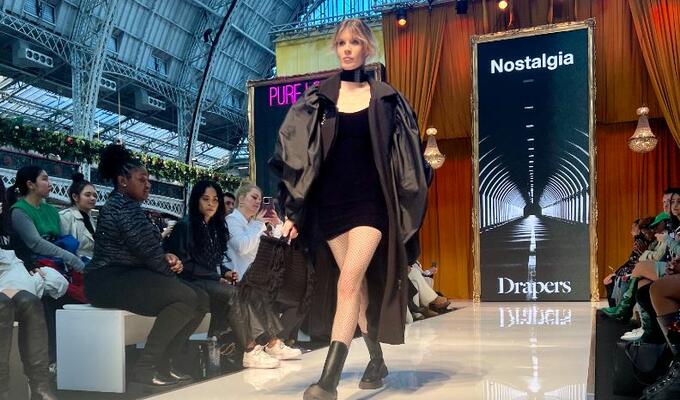
Young designer makes Egypt’s catwalk debut at UK’s Pure London
With training from GTEX/MENATEX, three Egyptian designers dazzled at the major fashion event
Many aspiring fashion designers who launch their own brands face both personal struggles and external challenges on the road to establishing themselves in the fashion industry.
That journey is even more challenging for young women. Seizing the right opportunity at the right time to hone one’s skills is essential for success.
Meet young Egyptian fashion designers Marina Azer, Nihal Abdel Akher, and Somaia Abolezz, self-made women who have established their lines of women’s apparel in Egypt.
This year, the three designers displayed their collections at the UK fashion buying event Pure London, their first international trade event.
Their participation at Pure London was supported by the GTEX/MENATEX programme in collaboration with the School of Fashion Management. During the show, Nihal’s brand WINGS by NA was selected as the first Egyptian brand to partake in the Pure London catwalk.
One of the designers, Somaia, described her experience at the event as “being on the shore of the international market.”
Marina said that engaging in person with international visitors and buyers boosted her confidence in speaking for her brand, which gave her business great exposure.
Nihal, whose collection of evening wear dresses was up on the runway, said the show gave her brand remarkable positioning internationally and opened doors to more opportunities for international growth. Following the event, the three designers connected with potential buyers from countries including the United Kingdom, France, Germany, and India.
Market ready
To prepare for the show, the designers benefitted from coaching sessions organized by the GTEX/MENATEX project in Egypt and led by international and local experts. The coaching was designed to help them to understand basic export and import regulations, to develop labels and samples, and to price appropriately. They also learned how to improve marketing materials and how to build long-lasting customer relationships.
By adapting to fashion trends, the designers learned how to define their own unique work, present it through a professional portfolio, and produce business strategies and promotional material that reflect the flair of their collections.
Shepreneurs
Marina, Nihal, and Somaia’s journey with GTEX/MENATEX started in 2022. They were among seven Egyptian fashion designers shortlisted in a contest to join the programme that aims to build their skills and confidence as both creatives and entrepreneurs.
For four months, they received coaching from local and international experts on product design and fashion trends. They learned the basics of marketing and branding with a focus on digital presence, market access, and participation at trade and fashion shows.
The intensive training culminated with their involvement in a pop-up shop at a prominent local mall. They displayed their work alongside up to 20 other designers for six weeks. This let them interact –one-on-one with a new customer base, increase sales, gauge buyers’ reactions to their products, and get direct feedback.
Young designers need this knowledge to break into the fashion industry on both creative and business levels. The GTEX/MENATEX journey gave them a head start on accessing new local and export markets as young female entrepreneurs, blending a unique artistic vision with solid business skills.
About the GTEX/MENATEX programme
The Global Textiles and Clothing Programme (GTEX) and its related work in the Middle East and North Africa (MENATEX) supports small and medium-sized enterprises and business support organizations working in the textile and clothing industry in developing countries to increase their export competitiveness.
The GTEX/MENATEX programme is funded by the State Secretariat for Economic Affairs (SECO) of the Swiss Confederation and the Swedish International Development Cooperation Agency (Sida), focusing on six priority countries (Egypt, Morocco, Jordan, Kyrgyzstan, Tajikistan and Tunisia).




